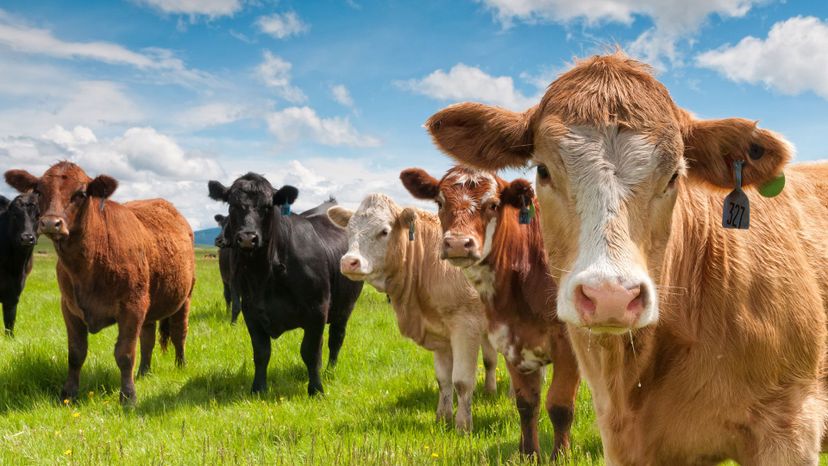
About This Quiz
It's time to make your mooove! Cozy up to these remarkable breeds of cattle while you find out some awesome facts about each one.
It is truly amazing to know that the wide variety of cattle breeds which can be found around the world today can all be traced back to a single small herd domesticated 10,500 years ago in the region which is now Turkey. Selective breeding and adaptation of herds to their particular environment have given rise to many distinctive-looking cattle breeds numbering around 1.5 billion heads of cattle, worldwide.
Cattle breeders around the world have refined different breeds for their dairy or beef production, as well as for their strength as draft animals. A trained eye will likely be able to tell them apart, but do you think you could name the specific breed of each one? Start beefing up on your cattle knowledge with this quiz!
There are some easy-to-recognize breeds thanks to the coloring of their coats, size of their horns or their pronounced hump and neck folds. That breed from the southern US with its expansive horns springs to mind. So, too, do those two European breeds with a band of white around the middle. Can you name the ones we're hinting at? Better graze into the quiz and see if you are right!
Cattle enthusiasts will probably make minced meat of this quiz but how will you do? Grab the bull by the horns and let's find out!
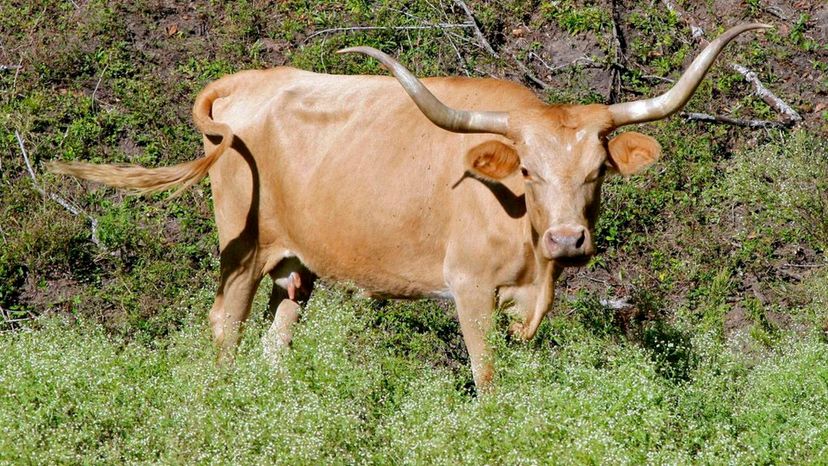
The ancestors of the Texas Longhorn were imported to the New World by the very first European explorers. The animal adapted to its new environment, and through a process of natural selection, developed its characteristic appearance. The horns on a Texas Longhorn can grow to span over 9 feet from tip to tip.
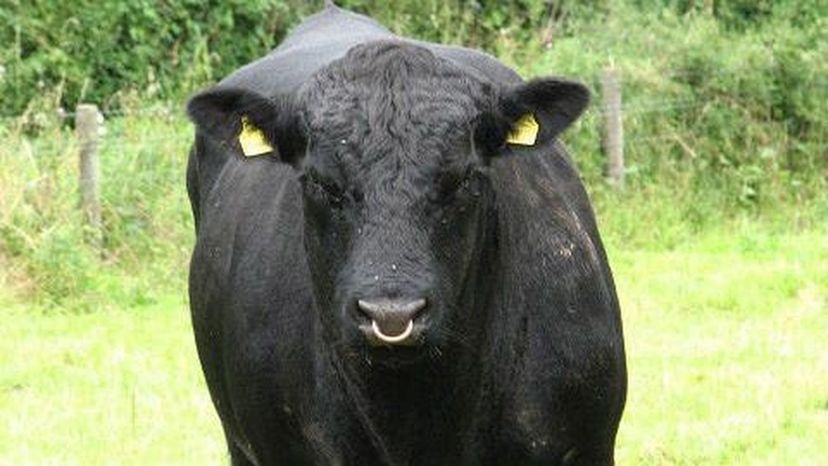
Aberdeen Angus cattle are commonly referred to around the world simply as Angus. The breed was developed sometime in the early 19th century in Scotland and although the Angus is most often black, some are red in color. The Angus breed is naturally polled, that is, it has no horns.
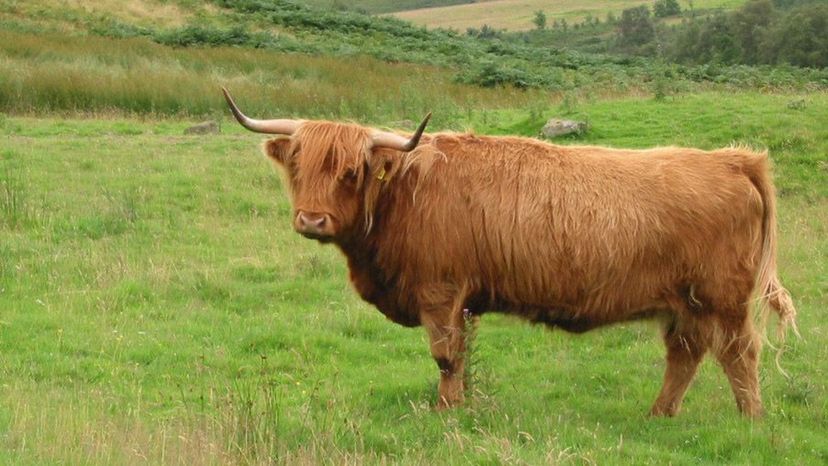
The Highland breed gets its name from the Highlands of Scotland, where it was developed. The breed, which has a thick hide and double coat, can be distinguished by its long, wavy outercoat and large head with a fringe which almost covers its eyes
Advertisement
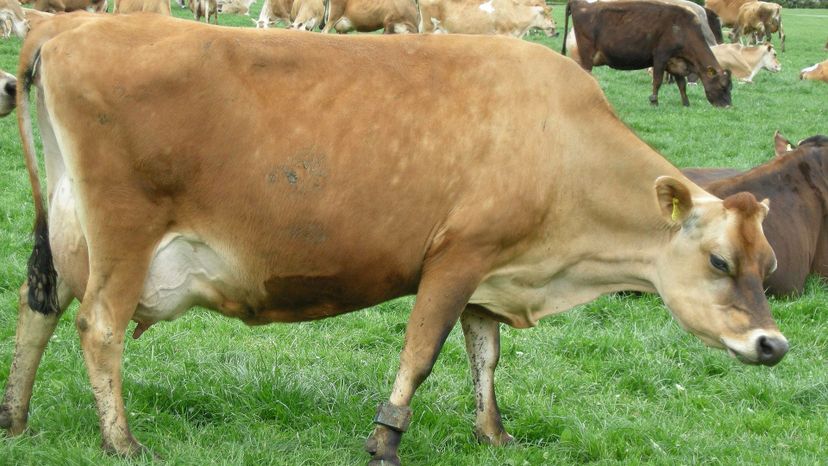
Jersey cattle are thought to have originated in France, but this is not a certainty. The breed is well known for the quality of milk it produces, its small frame and its characteristic light brown color. There are, however, some Jersey cattle with an almost grey coat and there are some Jerseys, known as Mulberry, whose coats are dull black.
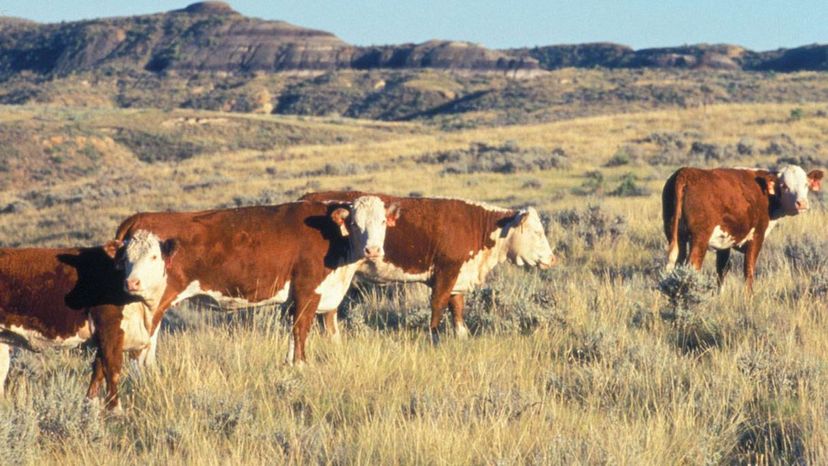
The Hereford breed is easily distinguished from other breeds by the location of white in its dark red to red-yellow coat. Apart from a white face, Hereford cattle also have white neck folds (dewlap), crest and underline. These gentle animals grow very quickly and produce good quality beef.
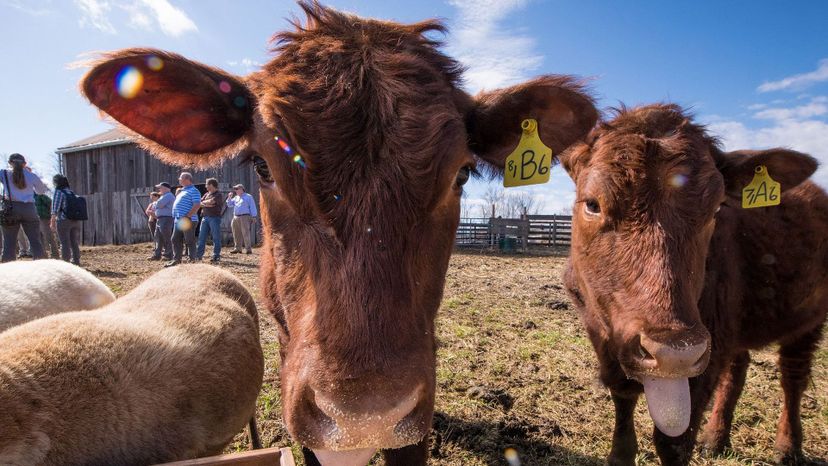
Except for its color, the Red Angus is said to be identical in every other way to the black Aberdeen Angus. Some cattle breeders, however, consider the Red Angus to be a separate breed and superior in some ways to the black variety.
Advertisement
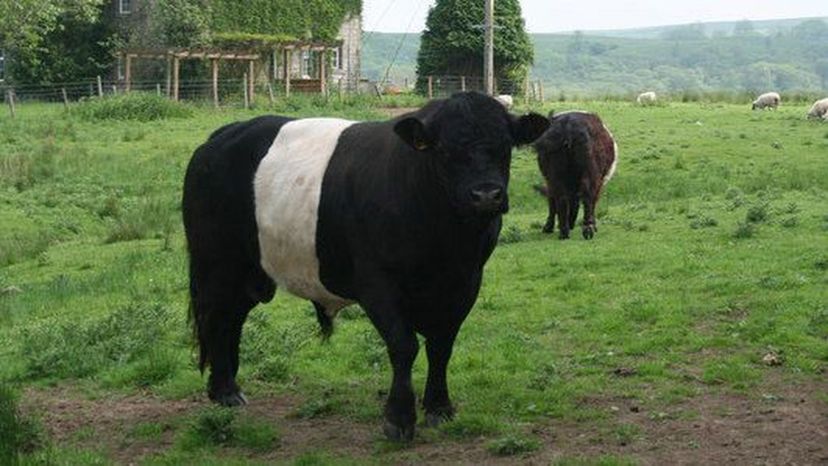
The Belted Galloway gets its name from the fact that the breed originated in Galloway (southwestern Scotland) and the distinctive white band around the midsection of the animal. The remainder of a Belted Galloway's coat is typically black, dun (dull grayish-brown) or red.
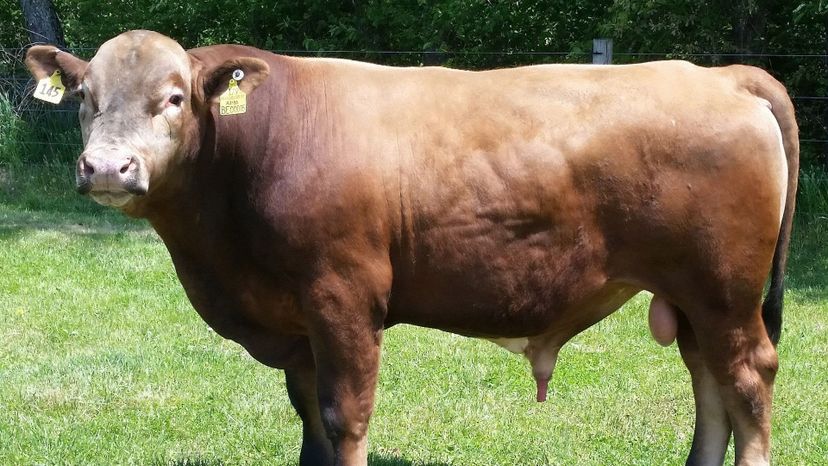
Beefalo were developed in the United States in the 1970s specifically for their beef content. The breed is a mix of three-eighths American Bison and five-eighths domestic cattle.
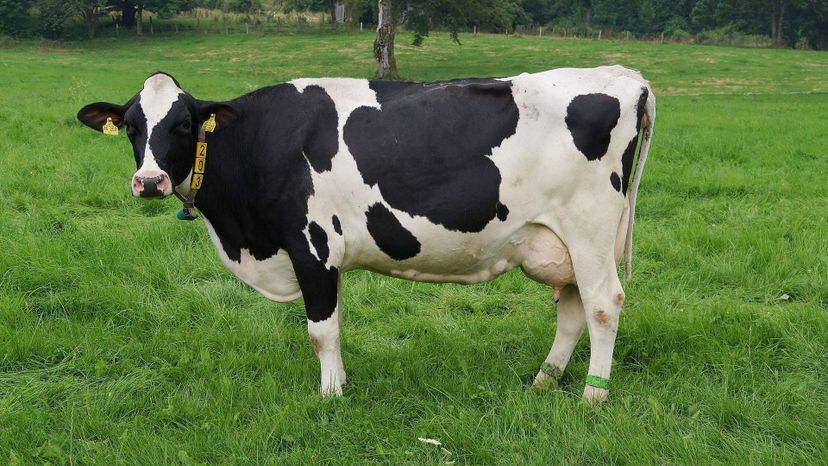
This breed is known for its exceptionally high milk production and in fact, is at the top of the list of dairy cows in terms of the volume of milk produced. The Holstein Friesian is also well known for its distinctive black-and-white and red-and-white coloring, although the red variety is less common.
Advertisement
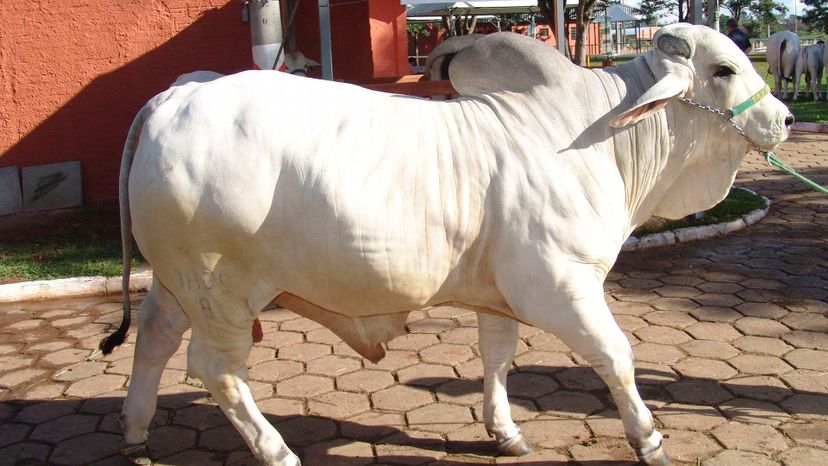
Most of the Brahman breed is colored light to medium gray but there are variations ranging from red to near black. It is noted for its large, thick hump which has, in recent times, become much sought after by beef connoisseurs.
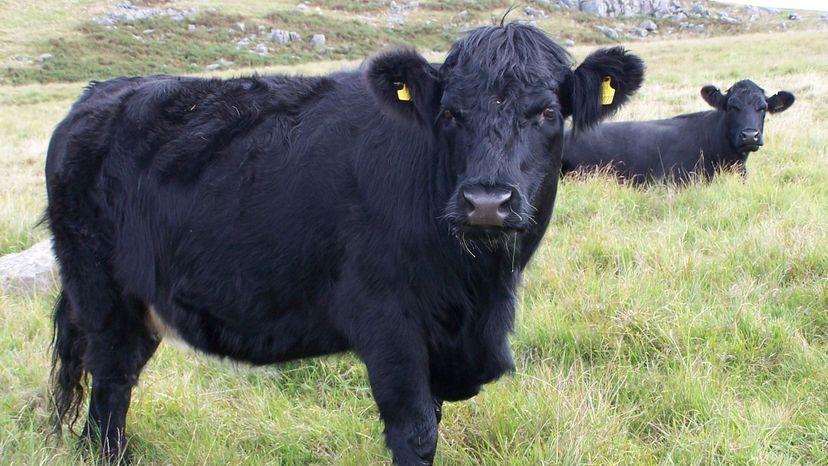
The Welsh Black was developed in Wales over 1, 000 years ago. It is predominantly found with an all-black coat but there are some Welsh Black which are born with a red coat. Furthermore, a red bull and red cow will always produce a red calf.
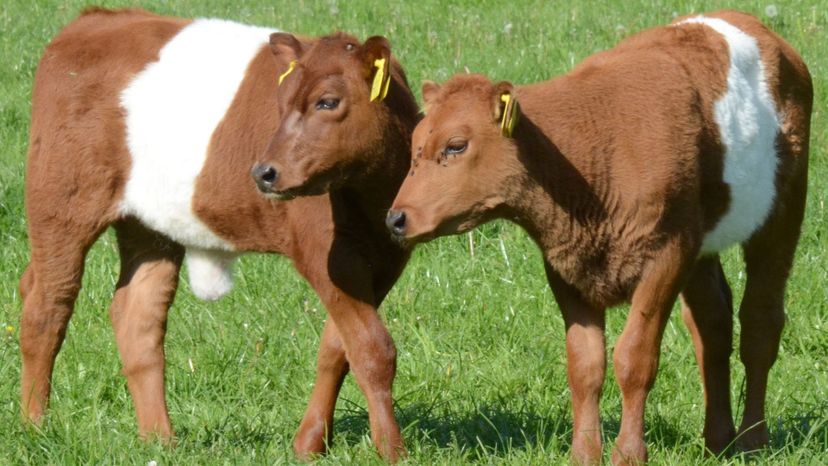
The distinctive white band of Dutch Belted cattle is a result of selective breeding. Other animals bred with the trait of a sheet (lakenvelder) of white around their midsection include Lakenvelder chickens, Hampshire pigs and Dutch rabbits.
Advertisement
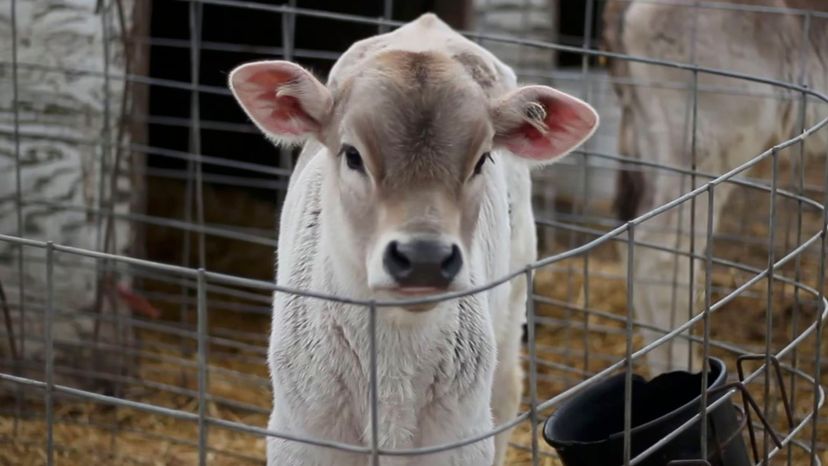
The Brown Swiss in native to the mountainous regions of Switzerland. The breed ranks high among the top milk-producing cattle in the world with its milk content being considered the best for making cheese. Brown Swiss are also regarded as good quality beef producers.
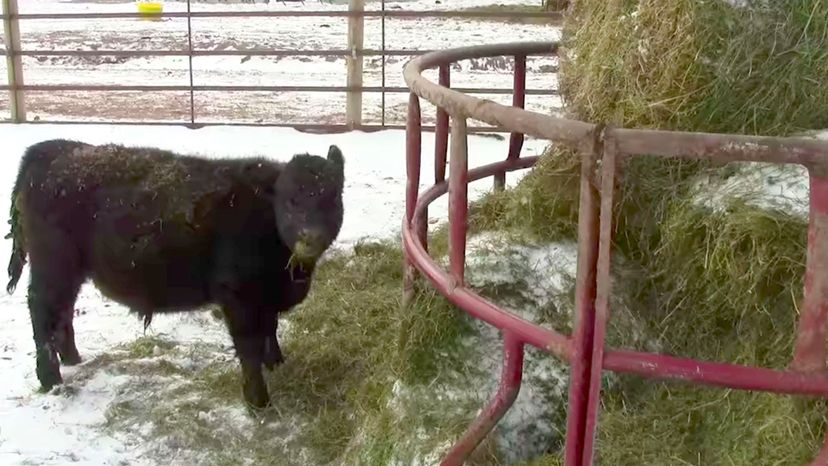
The Australian Lowline breed was developed from black Aberdeen Angus cattle and are noted for being extremely docile. The breed is one of the smallest among cattle which are not considered to be dwarfs. Australian Lowline cattle are naturally polled (hornless) with a typically solid black (or less frequently, red) coat.
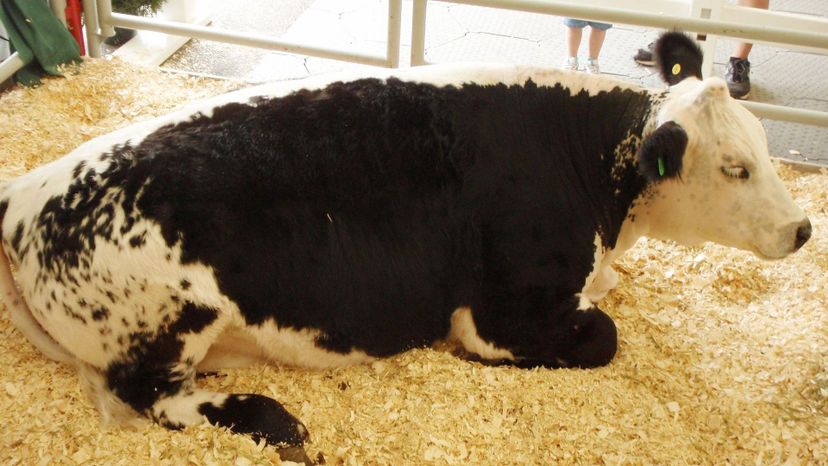
Also known as the Canadian Speckle Park, this breed is naturally polled (hornless) and characterized by its very distinctive markings. It is praised for high milk flow, as well as for having plenty of tender meat.
Advertisement
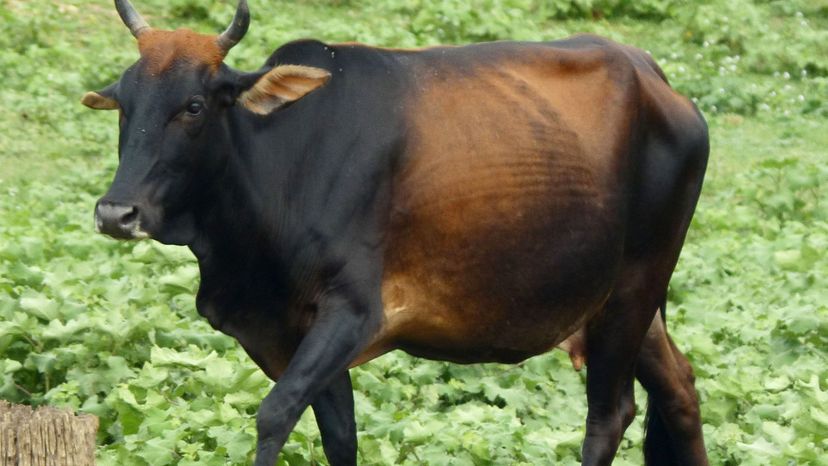
This hardy breed of horned cattle has a large hump and copious neck folds (dewlap). The Zebu originated in India where it is regarded as sacred and as such, is not bred as meat but for its milk and for use as a work animal. In other parts of the world, Zebu are bred as beef cattle, as well.
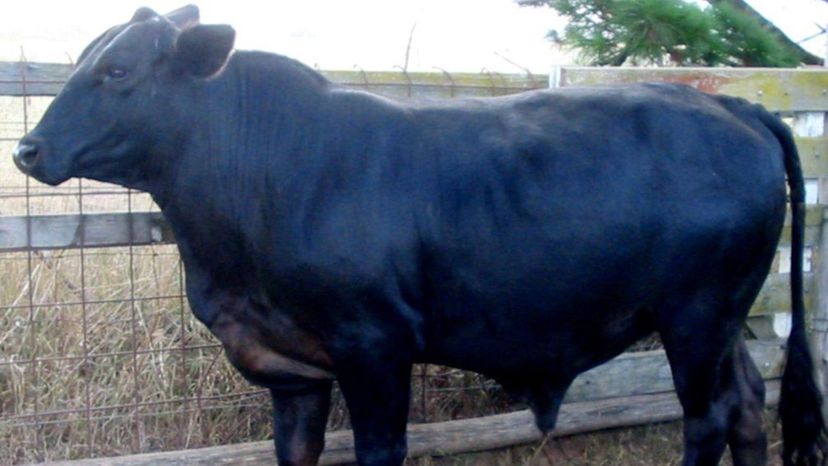
Development of the Brangus began in the US and Canada in the 1930s. The breed is a mix of three-eighths Brahman and five-eighths Angus. It is characterized by being polled (hornless) with a sleek solid black or red coat, as well as a moderately sized hump on the bulls.
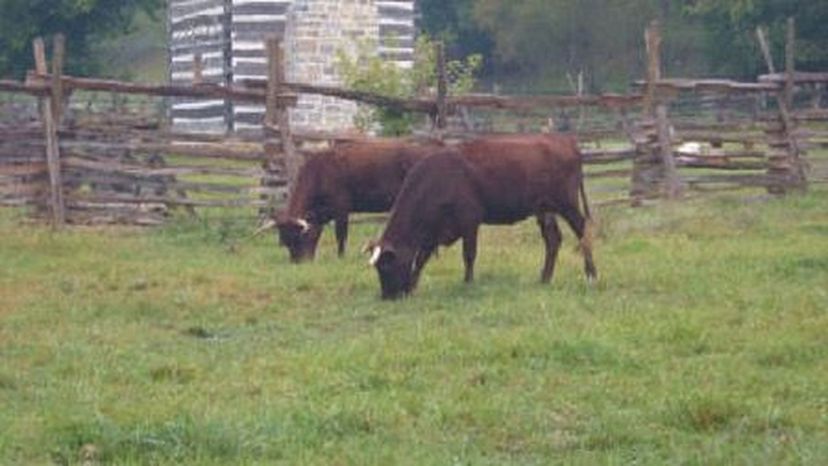
The American Milking Devon is actually a multipurpose breed, regardless of the fact that it has "milk†in its name. The animal produces good quality milk and beef, but is also sought after for use as oxen, that is, working (or draft) animals.
Advertisement
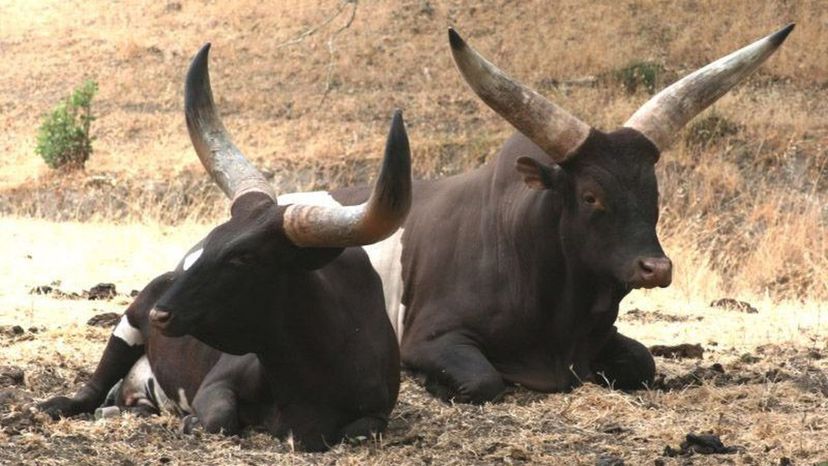
Its broad, long horns give the Watusi breed a striking appearance and images of this ancient breed can be found on the walls of some of the pyramids of Egypt. Watusi coat coloring is usually red and can range from spotted to solid.
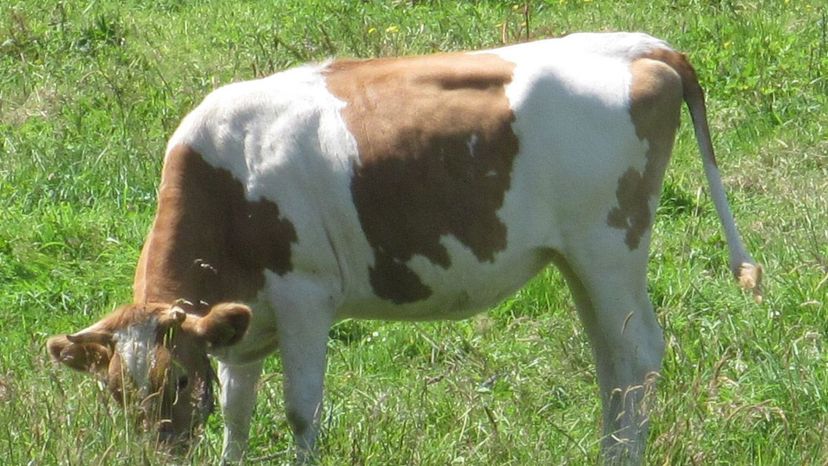
Guernsey dairy cattle were developed in the 19th century on the island of Guernsey in the English Channel close to the French coast. They are high-volume milk producers in relation to the amount of feed they consume and their milk is also well known for its superior quality.
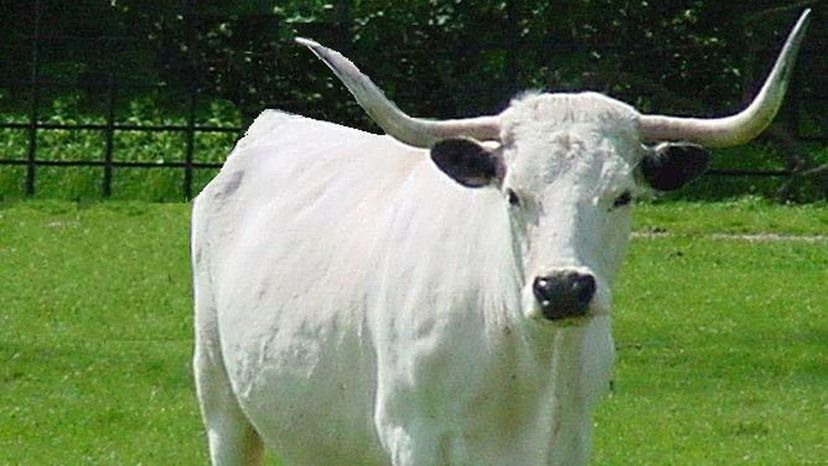
This rare breed of cattle has a white coat with black (or sometimes red) ears, feet and muzzle. The White Park has been in existence for millennia and is often referred to as Ancient White Park. The breed is medium to large in size with a long, lean body.
Advertisement
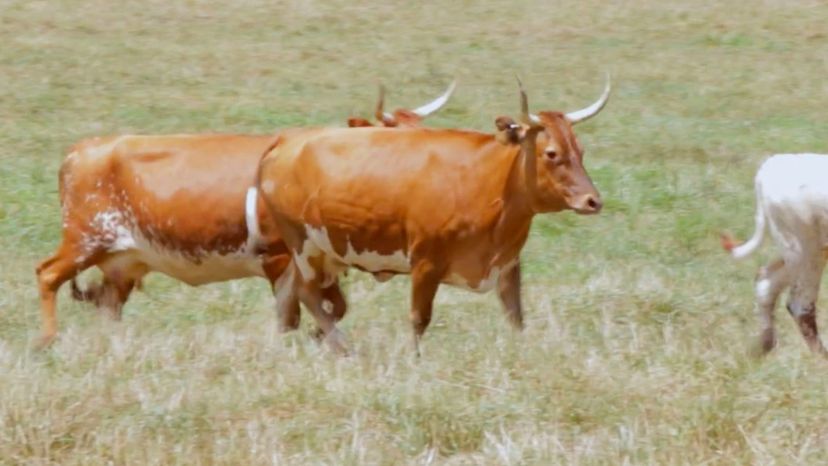
Pineywoods cattle are considered to be a landrace or heritage breed. Like the Texas Longhorn and Florida Cracker to which it is related, the Pineywoods is a direct descendant of the original stock of cattle brought to the New World by Spanish explorers. The breed is listed as "critically endangered.â€
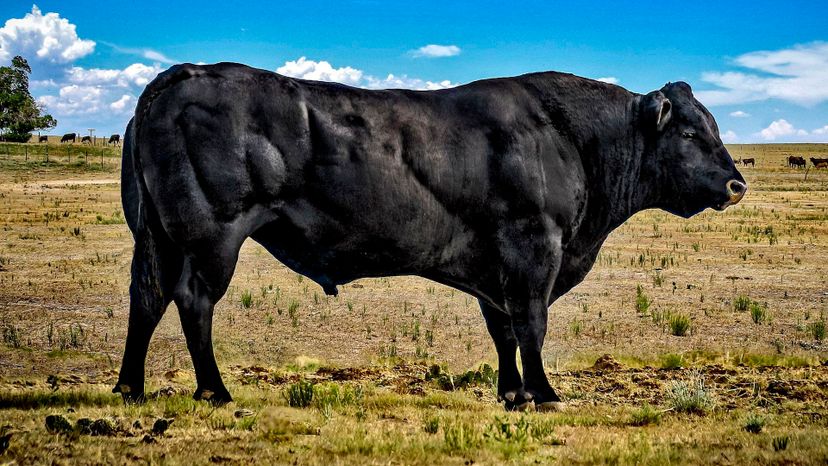
Development of the North American Piedmontese began in Canada and the US in the 1970s and 1980s. The breed began with the importation of Piedmontese cattle from their native home in Piedmont, northern Italy. The have natural double-muscling with relatively less bone and fat than most other breeds.
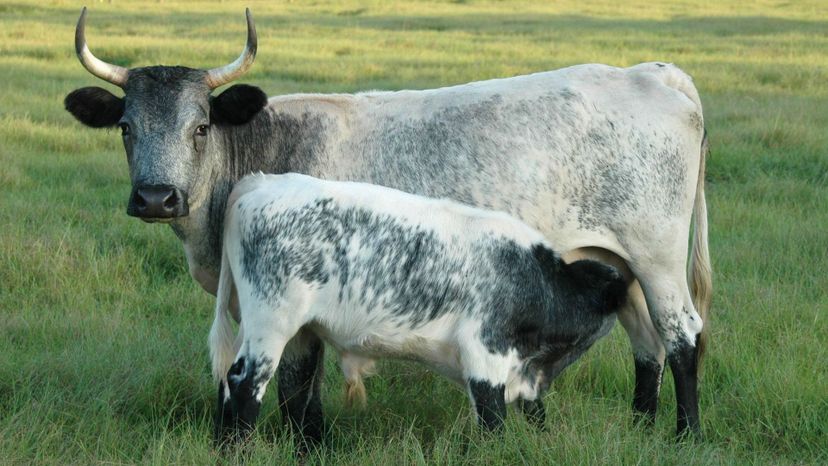
The Florida Cracker is also known as the Cracker Cow and as the Florida Scrub. Like the Texas Longhorn and the Corriente, the breed is related to the original cattle brought to the New World by European settlers. The term Cracker in its name was originally used for the pre-colonial settlers of Florida, among whom the breed developed.
Advertisement
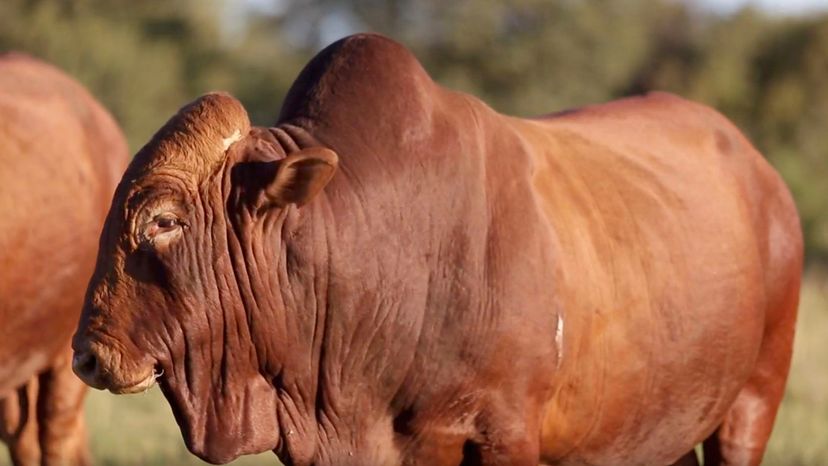
The Africander breed was developed centuries ago in the Cape of Good Hope, South Africa. They are thought to be the descendants of the Egyptian Longhorn and longhorned Zebu. The Africander is a large breed with a typically red coat, long lateral (sideways) horns and a small hump.
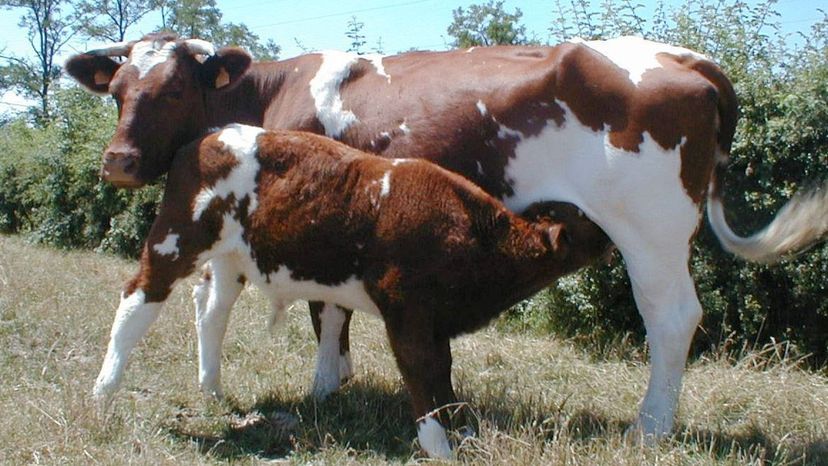
The breed gets its name from the neighboring Anjou and Maine regions in northern France where it originated. Its previous name was the Durham-Mancelle, after the two breeds from which it was created. In France, the Maine-Anjou breed is known as the Rouge des Prés (English: Red Meadows).
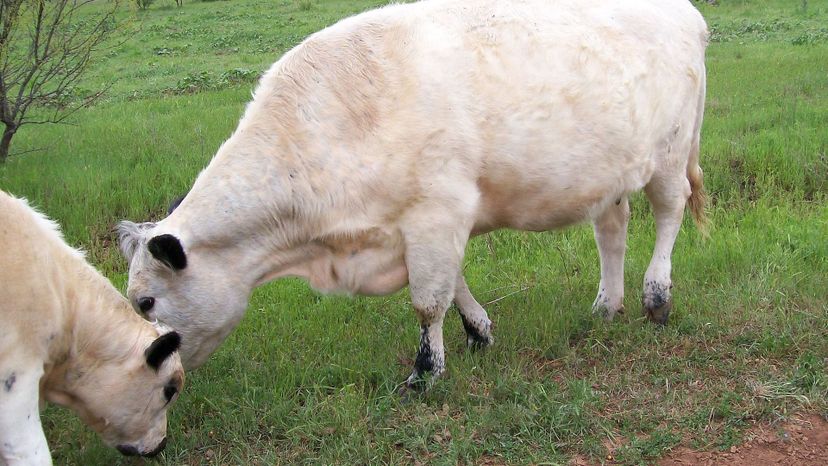
The British White breed is said to be a descendant of a similarly white, ancient breed of wild cattle from north west England. The breed is naturally polled (hornless) and has a white coat with black (and less often, red) points including ears, nose, hoof, muzzle, eyelids and teats.
Advertisement
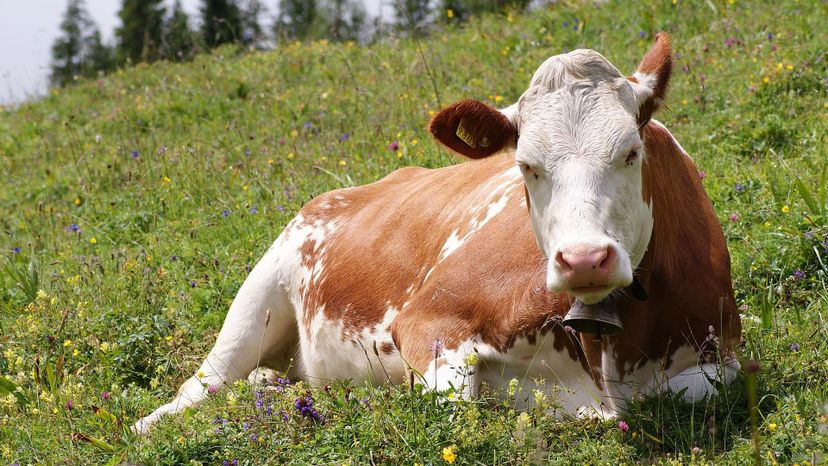
The predominant coloring in the Simmental breed is red with white markings, but this varies in herds around the world. Simmental coloring can also include a mainly gold or black coat with white found in certain areas of the body.
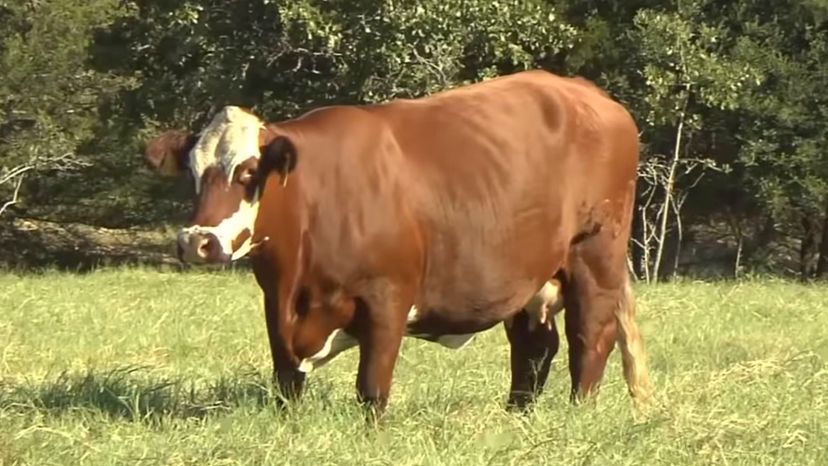
The Santa Gertrudis is a cross of three-eighths Brahman and five-eighths Shorthorn breeds. They were developed to thrive in the less-than-ideal for cattle-rearing conditions of the Texas environment. Santa Gertrudis cattle hold the distinction of being the first beef breed developed in the US.
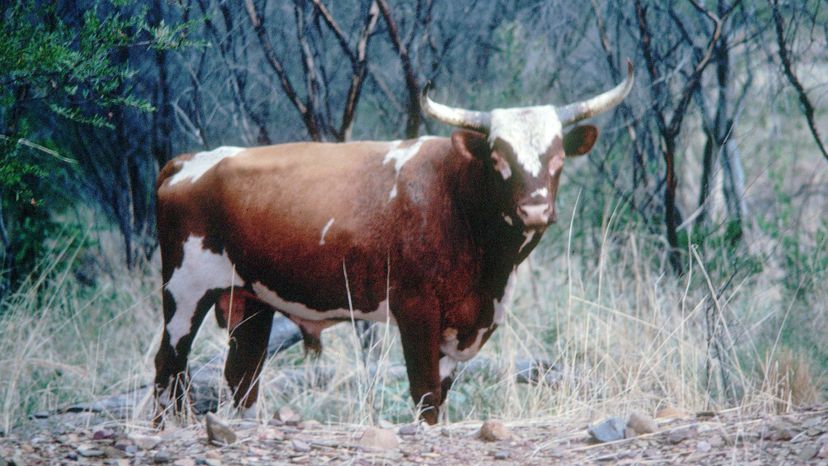
There are two breeds of Shorthorn cattle: Dairy Shorthorn and Beef Shorthorn. Both are descendants of one Shorthorn breed but, as their names suggest, each was developed according to the particular trait desired by breeders.
Advertisement
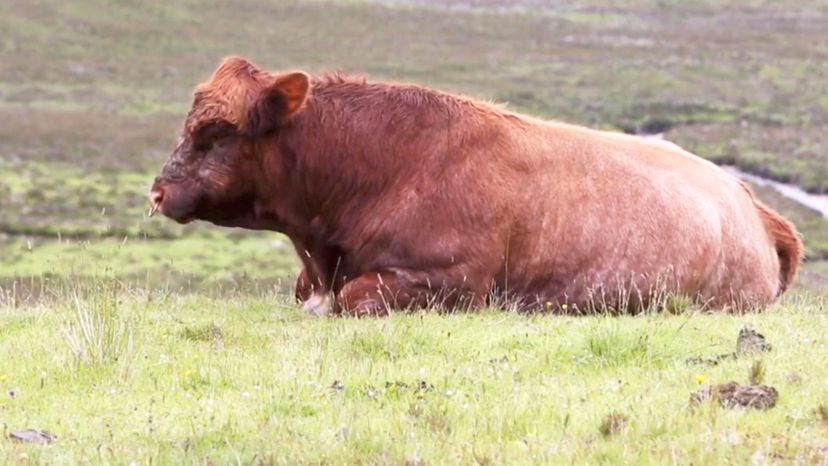
The distinctively colored Randall breed originated in Vermont and is named after the breeder which developed it. They are considered to be an endangered breed, but their numbers are currently on the rise. Randall cattle are triple-purpose as they are raised for milk and beef, as well as to function as work animals.
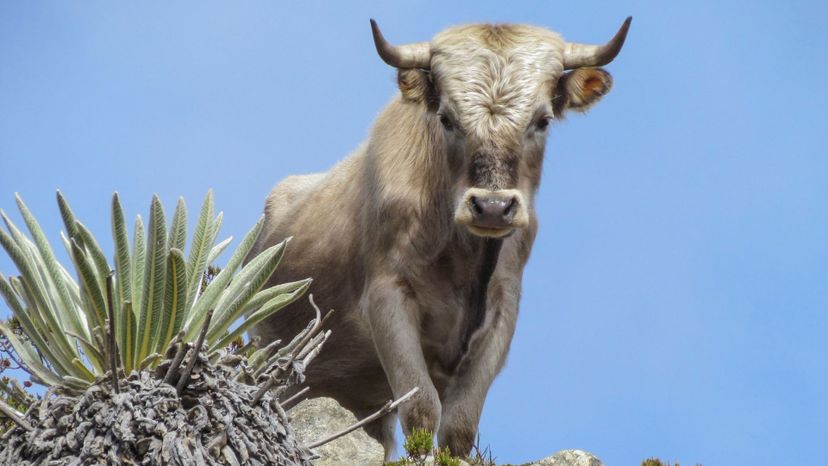
The Charolais breed is noted for being well-muscled with a long, deep and broad body. Their white coat is a strong genetic trait which is most often passed on to calves regardless of what breeds they are crossed with.
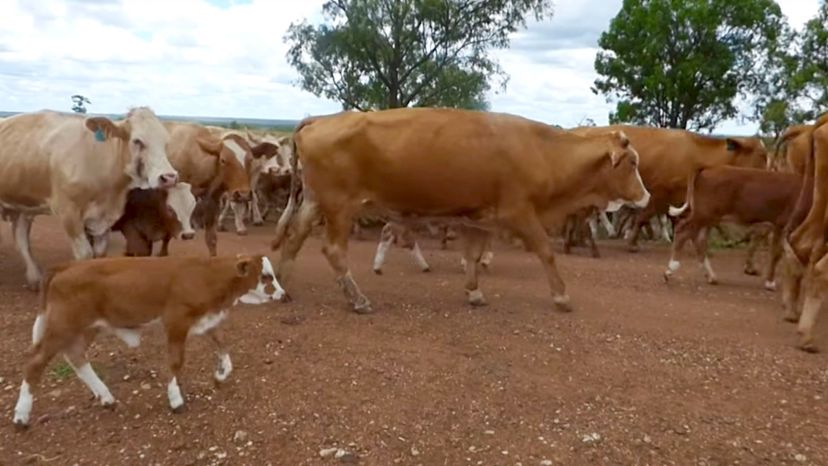
The Simbrah is a specially developed variety of beef cattle with desirable characteristics of both the Simmental and Brahman breeds from which it is derived. The Simbrah is most often red or black with a small amount of white on its face in either case.
Advertisement
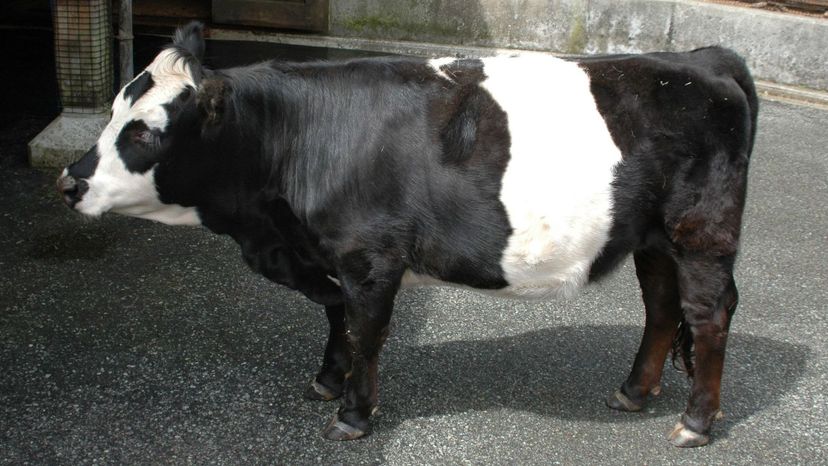
The Panda cow is easily recognized by its coat markings, which very closely resemble those of a giant panda bear. This includes having a white face and black eye patches, as well as a white "belt†around its midsection.
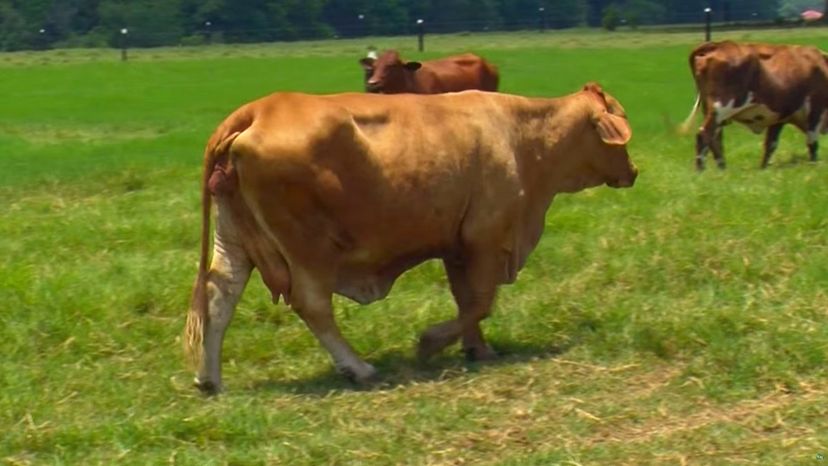
Also known as "The Profit Breed,†the Beefmaster was developed to rate highly with regard to six economic factors. These are disposition, fertility, weight, conformation, hardiness and milk production. They are considered to be a "dual purpose†breed as they serve very well whether they are bred for their milk or meat.
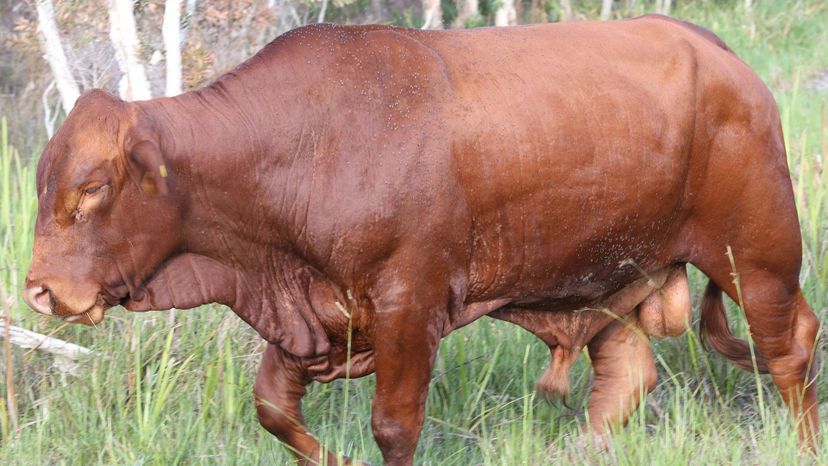
Cattle breeders in Australia developed the Droughtmaster through selective breeding which included Zebu, Brahman and Shorthorn traits. The breed was needed to withstand the dry, harsh conditions in some regions of the country which previous herds of mainly British breeds which were not coping well with.
Advertisement
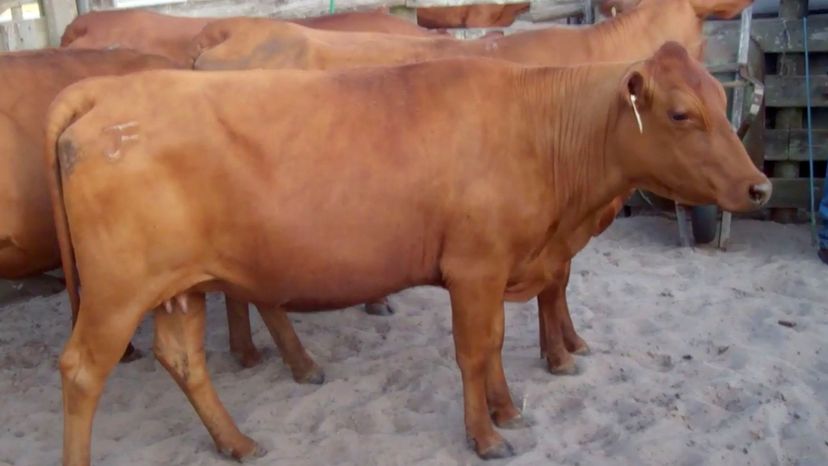
The Senepol breed is a mix of N'Dama cattle from the West African country of Senegal and Red Poll cattle which originated in England. The breed is medium sized, naturally polled (hornless) and has a red coat. Beef from the Senepol is often described as being "deliciously tender.â€
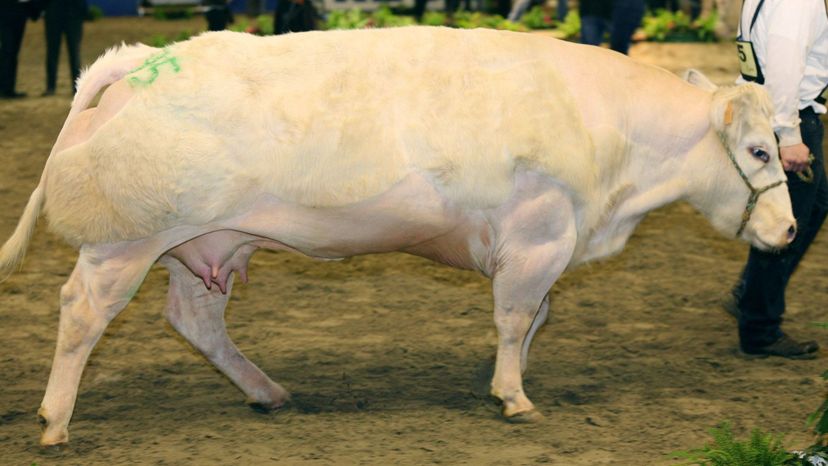
Originating in upper and central Belgium, the Belgian Blue can be colored white, black, blue roan or a combination of these. Although quite large, thanks to its natural double-muscling, the Belgian Blue is well known for its gentle disposition.
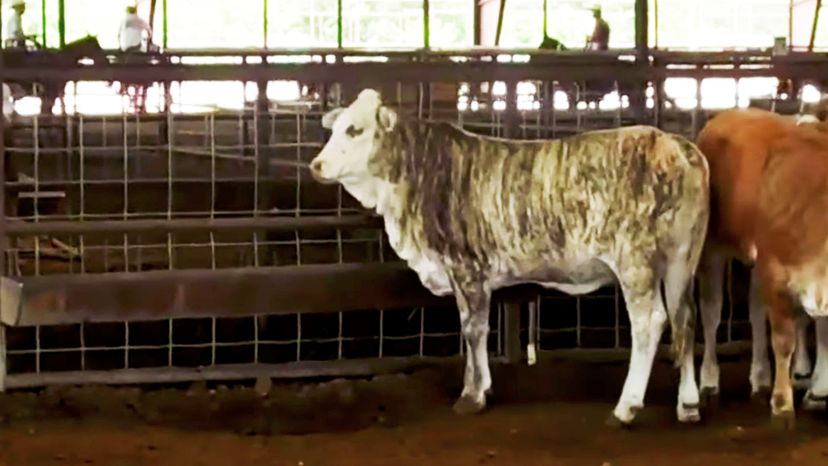
There are two separate blood lines to the Bradford breed, both developed in the 1940s - one in the US and the other in Australia. The breed, which is a mix of Brahman and Hereford breeds is noted for its good quality beef production.
Advertisement
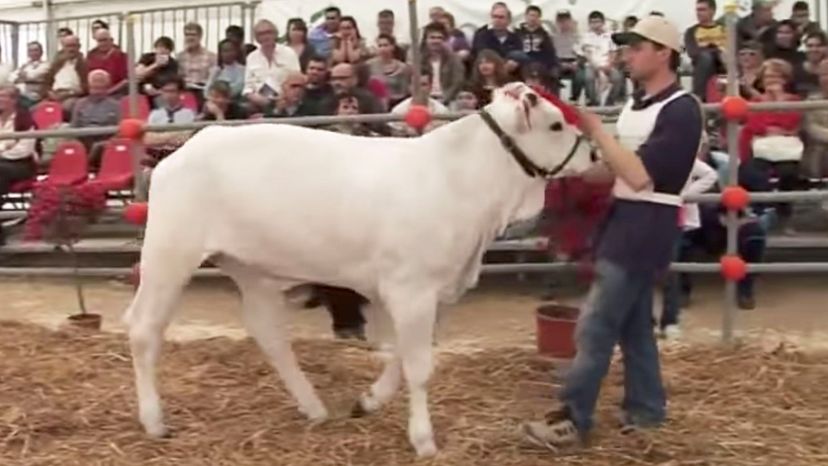
The Chianina (pronounced kee-a-nee-na) is the world's largest cattle breed, with some bulls standing over 5.5 feet high. Chianina calves are born fawn colored (light brown) but before they are a year old, their coat changes to the characteristic porcelain white of the breed.